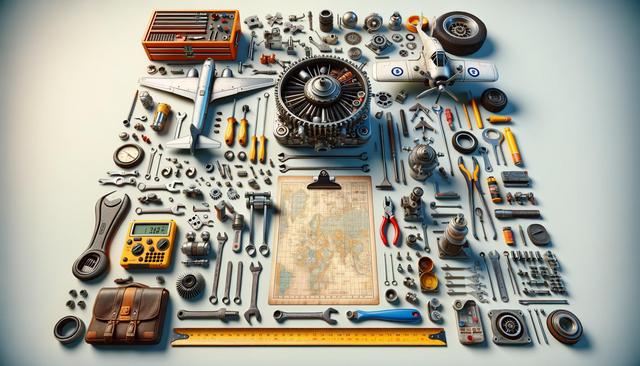The Role of Aviation Mechanics in a Safety-Driven Industry
Aviation mechanics are fundamental to ensuring the safety, reliability, and efficiency of aircraft operations. These professionals are responsible for maintaining, inspecting, and repairing aircraft according to strict aviation standards and safety protocols. Their work supports not only the functionality of the aircraft but also the broader regulatory framework that governs the aviation sector. In the United States, the importance of aviation safety has led to extensive Aviation Safety Training United States programs, which ensure that every mechanic is trained to recognize and correct potential hazards before they become critical.
Mechanics work closely with companies specializing in aircraft maintenance and repair. These organizations often operate under the supervision of national aviation authorities and follow rigid compliance guidelines to maintain certification. The collaboration between mechanics and these companies helps uphold the aviation industry’s reputation for safety and precision. With operations ranging from routine inspections to advanced diagnostics, aviation mechanics are a cornerstone of operational readiness in both commercial and private aviation sectors.
Companies Supporting Aircraft Maintenance and Repair
A wide range of companies offer support services for aircraft maintenance and repair. These organizations provide the necessary infrastructure, tools, and technical expertise to keep aircraft in airworthy condition. Many of these companies also offer Aircraft Maintenance Training to ensure their workforce stays updated with the latest mechanical systems and regulatory requirements.
Key services provided by these companies include:
- Scheduled and unscheduled maintenance
- Component repair and overhaul
- Airframe and engine diagnostics
- Avionics system upgrades
These services are aligned with national and international aviation standards, ensuring compliance with safety regulations. Regular audits and inspections are conducted to verify that maintenance procedures meet established guidelines. The collaboration between aviation mechanics and support companies contributes greatly to the operational longevity and safety of aircraft across the globe.
Aviation Training Programs and Their Importance
To meet the demands of the aviation industry, comprehensive Aviation Training Programs are essential. These programs are designed to equip aspiring aviation mechanics with the technical knowledge and practical skills required to excel in the field. From airframe systems to powerplant maintenance, the curriculum covers a wide spectrum of topics that are vital for ensuring flight safety.
Aviation Training Requirements typically include:
- Completion of accredited coursework
- Hands-on training under certified supervision
- Passing rigorous certification exams
- Ongoing education to maintain licensure
These training programs are often offered through specialized schools, technical colleges, and in-house corporate training departments. The Aviation Training Industry continues to evolve with advancements in technology, making it critical for training providers to update their materials regularly. The emphasis on precision, safety, and continuous learning ensures that graduates are well-prepared to join the aviation workforce.
Career Opportunities in Aviation Training Jobs
The aviation sector offers a wide range of career paths for individuals completing Aviation Training Programs. One prominent area is Aviation Training Jobs, where certified professionals can work as instructors, curriculum developers, or technical trainers. These roles are vital in passing on experience and knowledge to the next generation of aviation mechanics.
In addition to teaching, professionals may find opportunities in:
- Aircraft inspection and quality assurance
- Maintenance planning and logistics
- Regulatory compliance and safety analysis
- Technical writing and documentation
These positions are often available within airlines, maintenance companies, and government agencies. The need for experienced trainers continues to grow as global demand for air travel increases and the aviation workforce ages. By engaging in educational roles, seasoned mechanics contribute to the sustainability and advancement of the aviation industry.
Maintaining Standards Through Ongoing Education
Continuous education is a core element of aviation safety and professionalism. As technology evolves, so do the systems used in modern aircraft. This makes ongoing Aviation Safety Training United States and Aircraft Maintenance Training crucial for staying current with new developments, ensuring that mechanics can perform their duties effectively and safely.
Ongoing training often includes:
- Updates on new aircraft models and systems
- Regulatory changes and compliance requirements
- Advanced diagnostic tools and techniques
- Refresher courses on safety protocols
By prioritizing continuous learning, aviation mechanics not only enhance their individual competencies but also contribute to the overall safety culture of the industry. Employers and training institutions alike emphasize the importance of lifelong learning as a means to maintain high safety and performance standards.
Conclusion: Supporting a Skilled and Safety-Focused Workforce
Aviation mechanics serve as the backbone of aircraft safety and operational integrity. With strong support from companies specializing in maintenance and repair, along with comprehensive Aviation Training Programs, the aviation sector is well-equipped to meet current and future challenges. For individuals pursuing Aviation Training Jobs, the path offers a rewarding career within a safety-critical industry. As technology and regulations evolve, continuous education remains essential, ensuring that aviation professionals uphold the highest standards of performance and safety.




Leave a Reply